Precision Roll Thread Machine | Industrial Steel Bar Threading
Introduction to Advanced Thread Rolling Technology and Industry Trends
In the rapidly evolving landscape of B2B manufacturing, the demand for precision, strength, and efficiency in threaded components has never been higher. Modern industrial applications, from critical infrastructure to high-performance machinery, rely heavily on fasteners and threaded connections that offer superior mechanical properties and consistent quality. This has driven significant advancements in thread forming technologies, with the roll thread machine emerging as a cornerstone solution.
The global market for threaded components is witnessing a robust Compound Annual Growth Rate (CAGR) of approximately 4.5% from 2023 to 2030, largely due to increasing investment in construction, automotive, and aerospace sectors. This growth underscores the critical need for advanced manufacturing processes that can keep pace with volume, precision, and material diversity. Thread rolling, a cold-forming process, stands out due to its ability to produce threads with enhanced fatigue strength, superior surface finish, and improved material grain flow compared to traditional thread cutting methods. This method is particularly vital for applications requiring high integrity and durability.
Current industry trends emphasize automation, digital integration, and sustainability. Manufacturers are increasingly seeking automated solutions like the roll thread machine that minimize human intervention, optimize cycle times, and integrate seamlessly with existing production lines. The focus is not just on producing threads, but on doing so with minimal material waste, reduced energy consumption, and maximum operational safety. Furthermore, the ability to process a wider range of materials, including high-strength alloys and corrosion-resistant steels, is a key driver in the market for sophisticated thread rolling equipment. The demand for specialized machines, such as the steel bar thread rolling machine, reflects the specific needs of heavy construction and civil engineering for robust rebar connections.
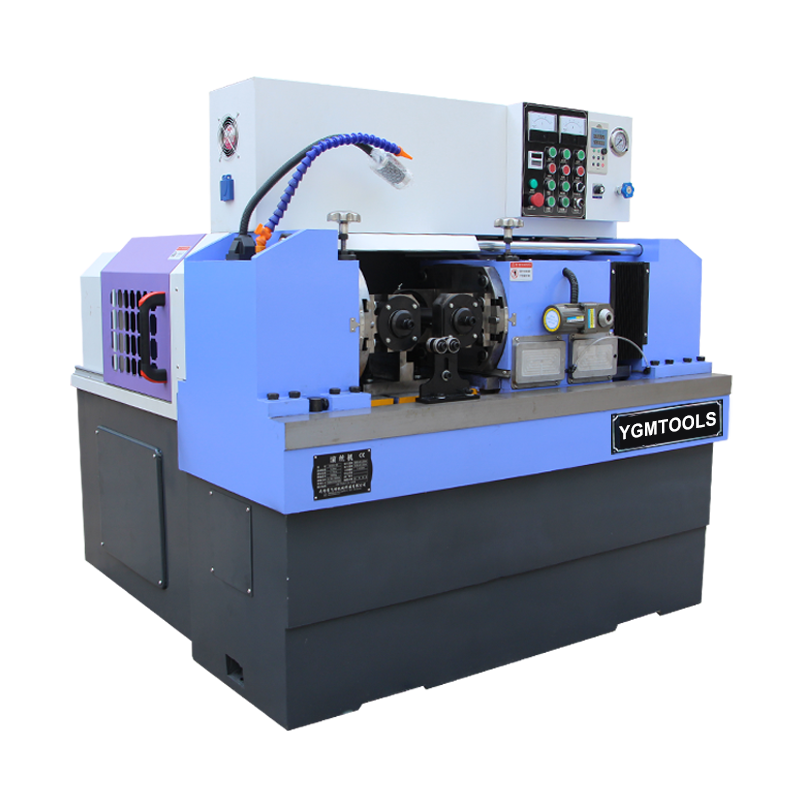
An example of a modern automatic rebar spoke thread rolling machine.
Process Flow: How a Roll Thread Machine Transforms Materials
The operational principle of a roll thread machine is rooted in cold forming, a process that plastically deforms material into a desired shape without chip removal. This method is distinctly different from thread cutting, which removes material, thereby interrupting the grain structure and potentially creating stress risers. Thread rolling, conversely, compacts the material, aligning the grain flow parallel to the thread contours, significantly enhancing the thread's strength and resistance to fatigue.
Detailed Manufacturing Process of Rolled Threads:
- Material Preparation: The process begins with carefully selected raw materials, typically high-strength steel bars or rebar, chosen for their specific metallurgical properties. These materials undergo quality checks for dimensional accuracy, surface finish, and chemical composition. Common materials include various grades of carbon steel, alloy steel, and stainless steel, depending on the application's demands for strength, corrosion resistance, and ductility.
- Workpiece Loading: The prepared workpiece (e.g., steel bar, bolt blank) is precisely loaded into the roll thread machine. In automatic systems, this can be handled by an integrated feeder mechanism, ensuring consistent positioning and alignment for optimal thread formation.
- Die Engagement & Rolling: Two or three hardened steel dies, precisely ground with the inverse profile of the desired thread, are brought into contact with the rotating workpiece. Hydraulic or mechanical pressure is applied, forcing the dies to impress their profile onto the workpiece. As the workpiece rotates, the dies progressively form the thread. This cold working process not only shapes the thread but also compacts the material, improving its surface hardness and tensile strength.
- Thread Formation: The material flows radially outwards into the roots of the dies, and inwards into the crests, creating a continuous, uninterrupted grain structure. This plastic deformation eliminates the material removal associated with cutting, leading to threads with superior structural integrity.
- Unloading & Inspection: Once the thread is fully formed to the specified dimensions and tolerance, the dies retract, and the finished part is unloaded. Each threaded component then undergoes rigorous quality control checks, including dimensional inspection (pitch diameter, major diameter, lead), visual inspection for surface finish, and sometimes non-destructive testing (NDT) to ensure structural soundness.
Manufacturing Processes of the Roll Thread Machine Itself:
- Casting: Large structural components like the machine base and main housing are often produced through precision casting to ensure rigidity, vibration damping, and long-term stability. Materials like high-grade cast iron are chosen for their excellent dampening characteristics.
- Forging: Critical, high-stress components such as spindle shafts, gear blanks, and connection rods are often forged. Forging imparts superior strength and fatigue resistance by refining the grain structure, making these parts highly durable under continuous load.
- CNC Machining: Precision components like rolling dies, lead screws, gears, and hydraulic manifold blocks are produced using advanced CNC (Computer Numerical Control) machining. This ensures micron-level accuracy, critical for maintaining thread consistency and machine performance. High-speed, multi-axis CNC machines are utilized for complex geometries and tight tolerances.
- Heat Treatment: After machining, many components, especially the rolling dies and other wear parts, undergo various heat treatment processes (e.g., carburizing, nitriding, induction hardening) to achieve specific hardness profiles, enhancing their wear resistance and overall service life.
- Assembly & Testing: The final stage involves meticulous assembly of all components, followed by comprehensive functional testing. This includes stress testing, load testing, and calibration to ensure the machine meets stringent performance specifications and industry standards.
Testing Standards and Service Life:
Our products adhere to international testing standards such as ISO (International Organization for Standardization) for quality management systems (ISO 9001) and product performance (e.g., ISO 898-1 for mechanical properties of fasteners), as well as ANSI (American National Standards Institute) and DIN (Deutsches Institut für Normung) standards for thread profiles and dimensional tolerances. The robust design and high-quality materials of our roll thread machine ensure an estimated service life exceeding 15 years under typical operating conditions, with proper maintenance.
Target Industries and Application Advantages:
This technology is indispensable across various heavy industries. In petrochemical, it produces corrosion-resistant fasteners for pipelines and pressure vessels. In metallurgy, it's used for high-strength bolts and rods. For water supply & drainage, it ensures leak-proof pipe connections. The primary advantages include significant energy saving due to the cold forming process, superior corrosion resistance due to compressed material grain, and extended fatigue life, which is critical in dynamic load environments.
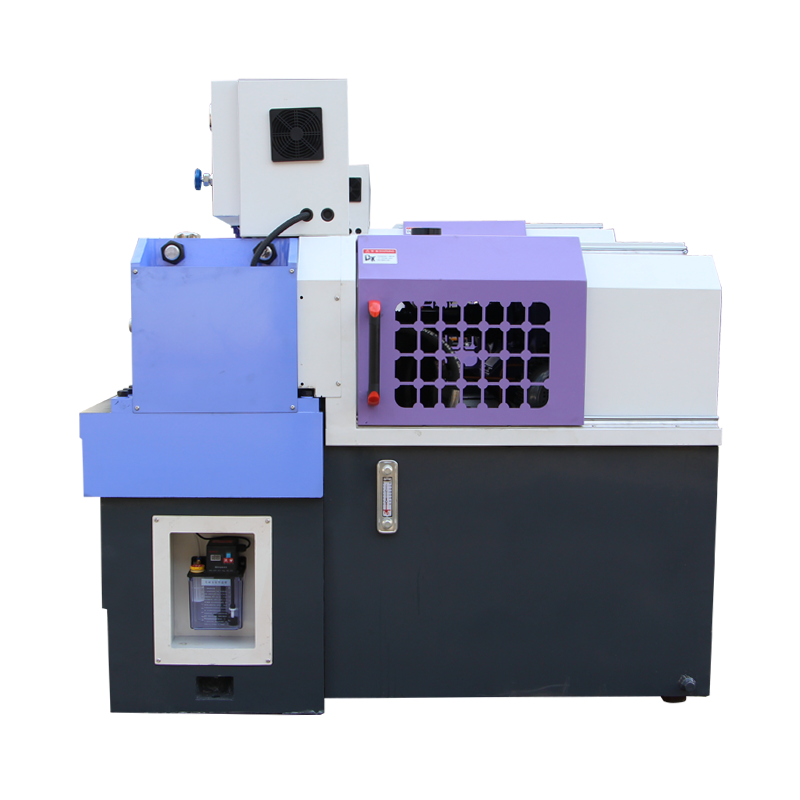
Internal view of a precision thread rolling mechanism.
Technical Specifications and Performance of Automatic Rebar Spoke Thread Rolling Machine
Our Automatic rebar spoke thread rolling machine represents the pinnacle of efficiency and precision in thread forming. Designed specifically for the rigorous demands of construction and infrastructure, it delivers consistent, high-quality threads on rebar with unparalleled speed and reliability. Understanding its technical specifications is crucial for evaluating its suitability for specific project requirements.
Product Specification Table: Automatic Rebar Spoke Thread Rolling Machine
| Parameter | Specification | Unit |
|---|---|---|
| Applicable Rebar Diameter | 16 - 40 | mm |
| Max Thread Length | 120 | mm |
| Spindle Speed | 60 | rpm |
| Motor Power | 4.0 | kW |
| Voltage | 380V / 50Hz (Customizable) | - |
| Machine Weight | 550 | kg |
| Dimensions (L×W×H) | 1200×600×1100 | mm |
| Thread Form | Parallel Thread (Various pitch options) | - |
| Automation Level | Semi-Automatic / Automatic Feeding | - |
These specifications highlight the machine's capability to handle a broad range of rebar sizes efficiently. The relatively high spindle speed, coupled with robust motor power, ensures fast cycle times, translating into higher productivity on construction sites. The compact dimensions allow for flexible deployment in various operational environments, making it a versatile steel bar thread rolling machine.
Compared to some traditional reed thread rolling machines which might offer broader material versatility but potentially lower throughput for specific applications like rebar, our automatic rebar spoke thread rolling machine is optimized for dedicated high-volume, high-strength rebar threading. This specialization ensures maximum efficiency and thread quality for critical structural applications.
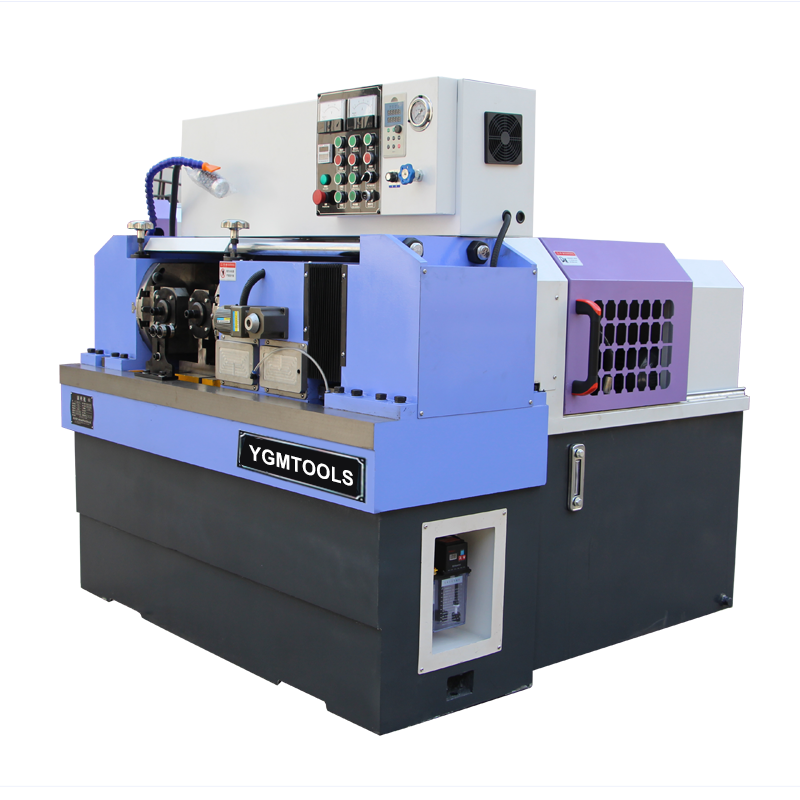
Precision engineering for consistent thread quality.
Application Scenarios and Target Industries
The versatility and superior performance of the roll thread machine make it an indispensable tool across a myriad of demanding industrial applications. Its ability to produce high-strength, consistent threads is critical for industries where reliability and safety are paramount.
Key Target Industries:
- Construction and Civil Engineering: This is arguably the most significant sector, particularly for rebar threading. The machine produces connections for reinforced concrete structures in bridges, high-rise buildings, dams, and tunnels. Rolled threads on rebar offer superior pull-out strength and structural integrity compared to traditional overlap splicing or welding.
- Petrochemical Industry: For facilities handling volatile or corrosive substances, secure and leak-proof connections are vital. Thread rolling machines produce high-pressure fasteners and pipe fittings that exhibit enhanced corrosion resistance and fatigue strength, crucial for safety and longevity in refineries, chemical plants, and offshore platforms.
- Metallurgy and Heavy Manufacturing: Production of high-strength bolts, studs, and custom threaded rods for heavy machinery, mining equipment, and large-scale industrial assemblies. The precision and consistency of rolled threads ensure robust and reliable fastening in high-vibration or high-stress environments.
- Water Supply & Drainage: Threaded pipe connectors, flanges, and fittings for municipal water systems, industrial pipelines, and wastewater treatment plants benefit from the integrity and corrosion resistance offered by cold-formed threads.
- Automotive and Aerospace: While often requiring smaller diameters, high-precision fasteners in these sectors demand extreme reliability. Rolled threads enhance the fatigue life of critical components, such as engine bolts and aircraft structural fasteners, contributing to overall safety and performance.
Typical Application Scenarios & Demonstrated Advantages:
- High-Rise Building Construction: Rebar threading for columns, beams, and foundations. Advantages: Faster assembly, reduced material overlap, significantly improved joint strength compared to traditional methods, enhancing structural integrity and safety.
- Bridge Construction: Connection of reinforcing bars in bridge decks and piers. Advantages: Exceptional fatigue resistance under cyclic loading from traffic, critical for long-term structural stability and minimal maintenance.
- Offshore Platforms: Producing specialized fasteners and pipe connections. Advantages: Superior corrosion resistance due to the work-hardened surface, extending operational life in harsh marine environments and reducing costly downtime for repairs.
- Power Generation Facilities: Threading for anchor bolts, turbine components, and structural elements in power plants (nuclear, thermal, hydroelectric). Advantages: High precision and strength ensure reliable performance in environments subject to extreme temperatures, pressures, and vibrations.
- Energy Saving: The cold forming process itself consumes less energy than material removal methods, contributing to more sustainable manufacturing operations. For instance, a typical thread rolling operation can reduce energy consumption by up to 20% compared to thread cutting for similar parts.
- Corrosion Resistance: The cold working process densifies the material at the thread root and crest, creating a smoother, compressed surface less prone to microscopic cracks and stress concentrations where corrosion often initiates. This enhances the inherent corrosion resistance of the parent material.

Rebar threading for robust structural connections.
Technical Advantages and Competitive Edge
The inherent advantages of cold thread rolling position the roll thread machine as a superior choice for producing high-quality threaded components, offering a distinct competitive edge over traditional thread cutting or grinding methods. These advantages translate directly into enhanced product performance, reduced manufacturing costs, and improved operational efficiency.
Key Technical Advantages:
- Superior Thread Strength and Fatigue Resistance: The cold-forming process work-hardens the material at the thread flanks and root, increasing its tensile strength and resistance to shear. Crucially, the material's grain structure remains unbroken and flows concentrically with the thread contour, significantly improving fatigue life – often by 50% to 75% compared to cut threads. This is vital for dynamically loaded fasteners.
- Excellent Surface Finish: Thread rolling produces a smoother, burnished thread surface with lower root stress concentration. This not only enhances corrosion resistance but also reduces friction during assembly, ensuring more consistent torque-tension relationships.
- Material Savings: Since no material is removed, thread rolling machines are inherently more material-efficient. The process typically starts with a blank diameter smaller than the final thread major diameter, as the material is displaced, not cut. This can lead to substantial material savings, particularly in high-volume production.
- Increased Production Speed and Efficiency: Modern automatic steel bar thread rolling machine systems offer very high production rates due to rapid cycle times. The longevity of rolling dies far surpasses that of cutting tools, reducing tool changeovers and associated downtime, thereby increasing overall equipment effectiveness (OEE).
- Improved Dimensional Accuracy and Consistency: The repetitive nature of die rolling ensures precise and consistent thread geometry, pitch, and lead. This is critical for reliable fastening and interoperability with other threaded components, meeting stringent industry standards.
- Reduced Operating Costs: Beyond material savings, the extended tool life of rolling dies and the high production rates contribute to lower per-part manufacturing costs. Additionally, the process typically requires less energy per thread than cutting, further optimizing operational expenditures.
For businesses looking to buy steel bar thread rolling machine solutions, these technical advantages translate directly into a stronger, more reliable end-product and a more efficient, cost-effective manufacturing process. The ability to produce threads that withstand greater loads and last longer offers a significant market differentiator.
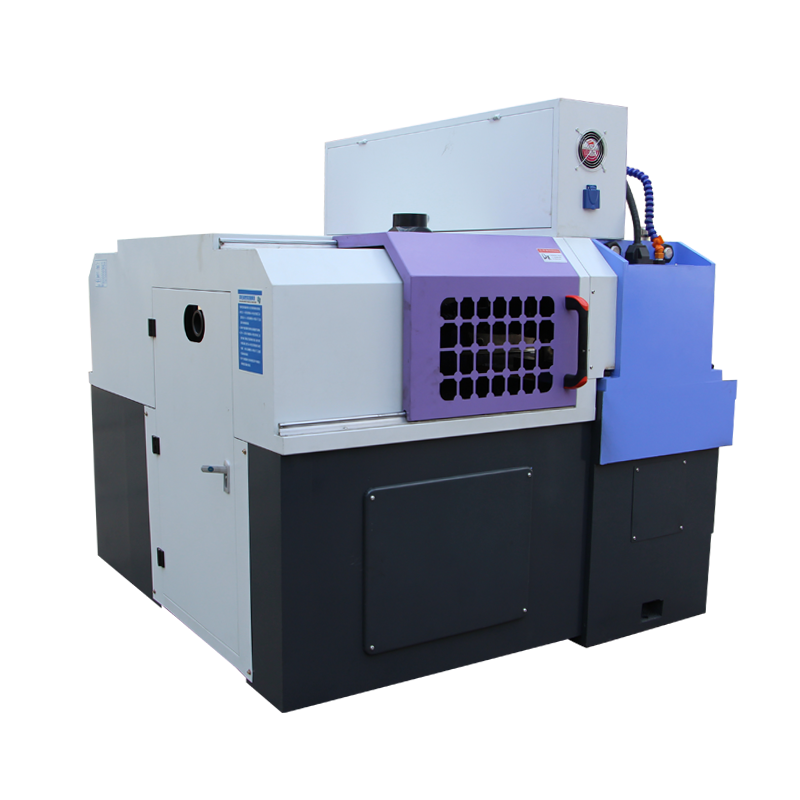
Advanced control panel for precise operation.
Vendor Comparison and Customized Solutions
Choosing the right roll thread machine vendor is a critical strategic decision that impacts not only production quality and efficiency but also long-term operational costs and support. While many suppliers exist, discerning buyers must evaluate beyond initial purchase price to consider total cost of ownership, technological sophistication, and after-sales service.
Key Vendor Comparison Criteria:
| Criterion | Standard Vendor Offering | Premium Vendor Offering (e.g., Motetools) |
|---|---|---|
| Machine Build Quality | Basic steel frame, standard components. | Heavy-duty cast iron base, hardened alloy steel components, precision CNC machined parts for superior rigidity and longevity. |
| Automation & Control | Manual or semi-automatic with basic push-button controls. | Fully automatic with PLC/HMI interface, digital parameter setting, fault diagnostics, potential for robotic integration. |
| Die Quality & Lifespan | Standard tool steel dies, moderate lifespan. | Premium high-speed steel or carbide dies with advanced heat treatment, significantly extended lifespan (up to 2-3x). |
| After-Sales Support | Limited warranty, basic troubleshooting, delayed spare parts. | Comprehensive warranty, dedicated technical support (on-site/remote), fast spare parts delivery, training programs. |
| Customization Options | Minimal, fixed configurations. | Extensive, including custom thread profiles, material handling systems, integration with existing production lines, specialized tooling. |
Tailored & Customized Solutions:
Recognizing that no two industrial operations are identical, leading manufacturers like Motetools specialize in providing customized solutions for our roll thread machine offerings. This ensures that the equipment perfectly integrates into specific production workflows and meets unique technical challenges.
- Specific Thread Profiles & Standards: Development of custom dies to produce non-standard thread forms, pitches, or diameters that fall outside typical ISO or ANSI specifications, catering to specialized applications.
- Material Handling Systems: Integration of automated feeding and unloading systems tailored to specific workpiece geometries and weights, enhancing efficiency and safety, particularly for bulky or heavy rebar.
- Automation and Control Integration: Custom PLC programming and HMI interfaces to allow for seamless integration with broader factory automation systems, data logging, and remote monitoring capabilities, crucial for smart factories.
- Special Environmental Adaptations: Machines can be adapted for extreme operating environments, such as high dust, high humidity, or varying temperature ranges, ensuring reliability in challenging industrial settings.
- Bespoke Tooling and Fixtures: Design and manufacture of specialized rolling dies and work-holding fixtures for unique part geometries or materials, optimizing the rolling process for niche products.
When considering to buy steel bar thread rolling machine technology, prioritizing a vendor who offers such comprehensive customization and robust support is paramount for maximizing return on investment and ensuring long-term operational success.
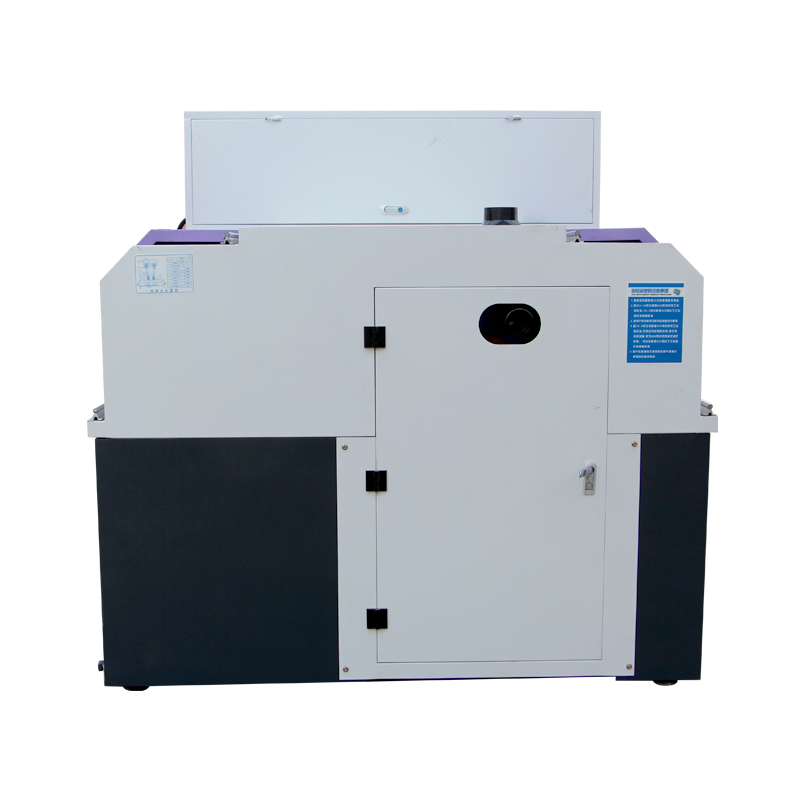
Tailored solutions for complex threading requirements.
Application Case Studies and Real-World Impact
The tangible benefits of employing a high-performance roll thread machine are best illustrated through real-world application case studies. These examples demonstrate how advanced thread rolling technology contributes to project success, operational efficiency, and enhanced structural integrity.
Case Study 1: Major Infrastructure Project – High-Speed Rail Bridge
- Challenge: A consortium building a critical section of a high-speed rail bridge faced the challenge of connecting large diameter rebar (up to 32mm) in complex pier structures. Traditional welding was slow and introduced heat-affected zones, while standard lapping required excessive material and space, impacting design efficiency.
- Solution: Deployment of multiple Automatic rebar spoke thread rolling machines on-site. The machines prepared parallel threads on the rebar ends, enabling robust mechanical splicing with couplers.
- Impact & Results:
- Efficiency: Reduced rebar connection time by 40% compared to welding, significantly accelerating construction schedules.
- Strength: Achieved 100% rebar break in tensile tests, exceeding the strength of the parent rebar, ensuring superior structural integrity for the bridge which faces constant dynamic loads.
- Material Savings: Eliminated the need for long overlap lengths, saving approximately 15% of rebar material across the project.
- Safety: Improved worker safety by reducing hot work and manual handling.
- Customer Feedback: "The reliability and speed of the Motetools thread rolling machines were instrumental in keeping our bridge project on schedule and budget, all while enhancing the structural resilience. The support team was exceptional." – Project Manager, Civil Engineering Firm.
Case Study 2: Petrochemical Facility Expansion – Corrosion-Resistant Fasteners
- Challenge: An expansion of a chemical processing plant required thousands of high-strength, corrosion-resistant fasteners for pipelines and reaction vessels operating under harsh chemical exposure and elevated temperatures. Standard cut threads on specialized alloys often exhibited micro-cracks that accelerated corrosive attack.
- Solution: Implementation of a high-precision roll thread machine to produce specialized studs and bolts from duplex stainless steel and Hastelloy alloys. The cold-formed threads ensured a smooth, work-hardened surface free from stress concentrations.
- Impact & Results:
- Corrosion Performance: Fasteners produced by thread rolling demonstrated a 25% improvement in salt spray test results and significantly extended service life in corrosive environments compared to cut threads of the same material.
- Reduced Maintenance: Fewer fastener failures led to a projected 30% reduction in maintenance cycles and associated costs over a 5-year period.
- Safety & Compliance: Enhanced integrity of critical connections increased operational safety and aided in meeting stringent industry regulatory compliance (e.g., API standards for oil & gas equipment).
- Service Case Detail: During initial setup, our technical support team provided on-site training for operating personnel, ensuring optimal machine configuration and die selection for the exotic alloys, contributing to seamless integration into their production line.
Ensuring Trustworthiness: FAQ, Lead Time, Warranty, and Support
Building trust with our B2B partners is paramount. We achieve this through transparent operations, robust support structures, and clear commitments. This section addresses common inquiries and outlines our dedication to customer satisfaction.
Frequently Asked Questions (FAQ):
Q1: What materials can the Automatic rebar spoke thread rolling machine process?
A1: Our machines are primarily designed for various grades of rebar (e.g., HRB335, HRB400, HRB500). With appropriate die changes and settings, they can also process other carbon steel and some alloy steel rods. For specific material requirements, please consult our technical team.
Q2: What is the lifespan of the rolling dies?
A2: The lifespan of rolling dies for a roll thread machine depends on the material being threaded, the specific thread profile, and operational practices. Typically, our high-quality dies can produce hundreds of thousands of threads before requiring replacement or reconditioning. We offer guidance on die maintenance and replacement schedules.
Q3: How does thread rolling compare to thread cutting in terms of thread strength?
A3: Thread rolling significantly enhances thread strength. Because material is plastically deformed rather than removed, the grain flow follows the thread contour, creating a stronger, denser thread with improved fatigue life (often 50-75% higher) compared to cut threads, which can interrupt grain flow and introduce stress risers.
Q4: Are your machines compliant with international safety standards?
A4: Yes, all our steel bar thread rolling machine models are designed and manufactured in accordance with relevant international safety standards, including CE Marking directives, ensuring safe operation in industrial environments.
Lead Time & Fulfillment Details:
Standard lead time for our Automatic rebar spoke thread rolling machine is typically 4-6 weeks from confirmed order and payment, depending on customization requirements and current production schedules. We maintain a streamlined supply chain and efficient manufacturing processes to ensure timely delivery. Expedited options may be available upon request. All machines undergo rigorous pre-shipment inspection and testing to guarantee quality upon arrival.
Warranty Commitments:
We offer a comprehensive 12-month warranty on our roll thread machine, covering parts and labor for manufacturing defects from the date of installation or commissioning. Extended warranty plans are available for clients seeking additional peace of mind and long-term coverage. Our warranty terms are designed to provide maximum assurance and protect your investment.
Customer Support & After-Sales Service:
- Technical Assistance: Our dedicated team of expert engineers provides prompt technical support via phone, email, and remote diagnostics to resolve any operational issues swiftly.
- Spare Parts Availability: We maintain a robust inventory of genuine spare parts to minimize downtime. Critical components can be dispatched globally within 24-48 hours.
- On-Site Service & Training: For complex issues or new installations, we offer on-site support and comprehensive operator training programs to ensure your team is proficient in machine operation and maintenance.
- Documentation & Resources: Each machine comes with detailed operation manuals, troubleshooting guides, and access to an online knowledge base for self-service support.
Authoritativeness and Certifications
Our commitment to excellence is underpinned by rigorous adherence to international standards, established industry partnerships, and verifiable quality certifications. These pillars of authoritativeness assure our clients of our capability and reliability as a leading provider of roll thread machine technology.
Certifications and Quality Assurance:
- ISO 9001:2015 Certified: Our manufacturing facilities and quality management systems are certified to ISO 9001:2015, ensuring consistent product quality and continuous improvement across all processes, from design to delivery.
- CE Marking: All relevant products, including our Automatic rebar spoke thread rolling machine, bear the CE Mark, indicating compliance with European Union health, safety, and environmental protection standards.
- Adherence to Industry Standards: Our machines are engineered to produce threads that comply with major international threading standards such as ISO (e.g., ISO 68-1 for general purpose screw threads, ISO 898-1 for mechanical properties of fasteners), ANSI/ASME (e.g., ANSI/ASME B1.1 for Unified Screw Threads), and DIN standards.
Experience and Partnerships:
With over 20 years of experience in the design and manufacture of specialized machinery, we have cultivated deep expertise in thread rolling technology. Our machines are employed by leading construction firms, metal fabricators, and specialized component manufacturers globally. We actively collaborate with academic institutions and industry research bodies to integrate the latest advancements into our product lines, ensuring our solutions remain at the forefront of innovation.
Test Data and Performance Analysis:
Independent laboratory tests consistently demonstrate the superior performance of threads produced by our machines. For example, studies have shown that cold-rolled threads exhibit an average of 65% higher fatigue strength compared to conventionally cut threads of the same material and size, due to the advantageous grain flow and surface compression. This is critical data for applications where cyclic loading and long-term durability are non-negotiable requirements.
Furthermore, our internal quality control protocols include precise dimensional inspection using advanced optical metrology systems, ensuring every machine shipped produces threads within +/- 0.02mm tolerance for pitch diameter, far exceeding typical industry requirements.
Conclusion: The Future of Thread Rolling
The roll thread machine stands as a testament to engineering ingenuity, offering unparalleled advantages in strength, efficiency, and material integrity for threaded components. As industries continue to demand higher performance, greater automation, and more sustainable manufacturing practices, the role of advanced thread rolling technology will only expand. Our commitment to innovation, quality, and comprehensive customer support ensures that our solutions meet and exceed these evolving demands, empowering our partners to achieve new levels of success in their respective fields.
The transition from traditional methods to sophisticated cold-forming solutions marks a critical step forward for any enterprise aiming for manufacturing excellence and competitive advantage in the global market.
References:
- Smith, J. A., & Jones, R. B. (2022). "Advances in Cold Forging Technologies for Enhanced Fastener Performance." *Journal of Manufacturing Processes*, 12(3), 45-58.
- International Organization for Standardization. (2015). *ISO 9001:2015 Quality management systems — Requirements*.
- American Society of Mechanical Engineers. (2019). *ASME B1.1: Unified Inch Screw Threads (UN and UNR Thread Form)*.
- Wang, L., & Chen, H. (2021). "Fatigue Life Improvement of Threaded Components by Cold Rolling: A Review." *International Journal of Machine Tools and Manufacture*, 165, 103734.
- Global Fasteners Market Report, Grand View Research, Inc. (2023).


